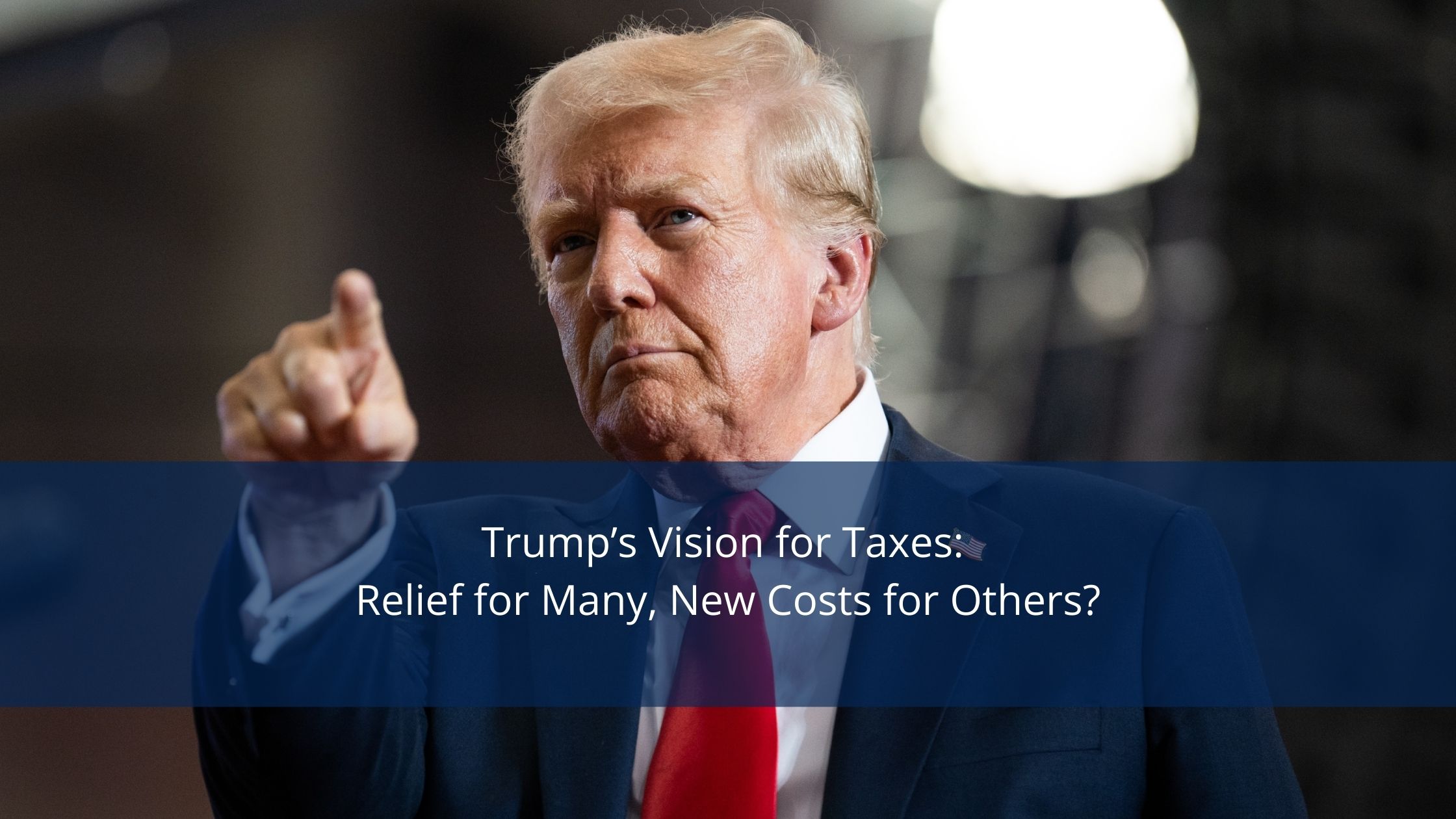
Former U.S. President Donald Trump is once again making waves with a bold tax proposal that could eliminate federal income taxes for individuals earning up to $150,000 annually. While this plan promises relief for millions of middle-class Americans, it also raises crucial questions—how will the government make up for the lost revenue, and who will bear the financial burden?
As the U.S. gears up for the 2024 Presidential Elections, Trump's tax plan is emerging as a key topic of debate. Is this a strategic move to win over voters, or a transformative shift in the country’s economic landscape? Let's break it down.
Under Trump’s proposed tax reform, individuals earning up to $150,000 and married couples making up to $300,000 would be exempt from federal income tax. This means millions of Americans could see a significant boost in their take-home pay, easing financial burdens amid rising inflation and economic uncertainty.
For many, this sounds like a game-changer. More money in their pockets could lead to increased spending, potentially stimulating economic growth. However, there’s a catch—if the government isn’t collecting income tax from a vast majority of Americans, how will it fund essential services like defense, healthcare, and infrastructure?
To compensate for the potential revenue loss, Trump's administration suggests:
The idea is that by taxing imports more heavily, the government can generate enough revenue to sustain its operations. But critics argue that higher import tariffs could lead to increased costs for businesses and consumers, especially for goods that Americans rely on from other countries.
Like any economic policy, Trump’s tax plan could benefit some while creating challenges for others.
1. Winners
2. Losers
Economists and political analysts are divided on the proposal. Some argue that removing income tax for middle-class Americans could boost spending and economic growth, while others warn that tariff hikes could increase inflation and hurt businesses that rely on international trade.
With the 2024 elections approaching, this plan could become a major talking point, influencing voter decisions. Supporters see it as a much-needed tax relief, while critics question its long-term sustainability.
Trump’s tax vision presents a bold shift in the U.S. tax system. While middle-class Americans could benefit from zero income tax, the increased reliance on tariffs could have unintended consequences for businesses and consumers.
Whether this plan becomes a reality depends on political will, economic feasibility, and voter sentiment. As discussions continue, one thing is clear—this proposal is set to spark intense debates about taxation, economic policy, and the future of America’s financial stability.
What are your thoughts? Would you support a tax plan like this? Let us know in the comments on https://forms.gle/RMs3hVzHNBRPovLD7